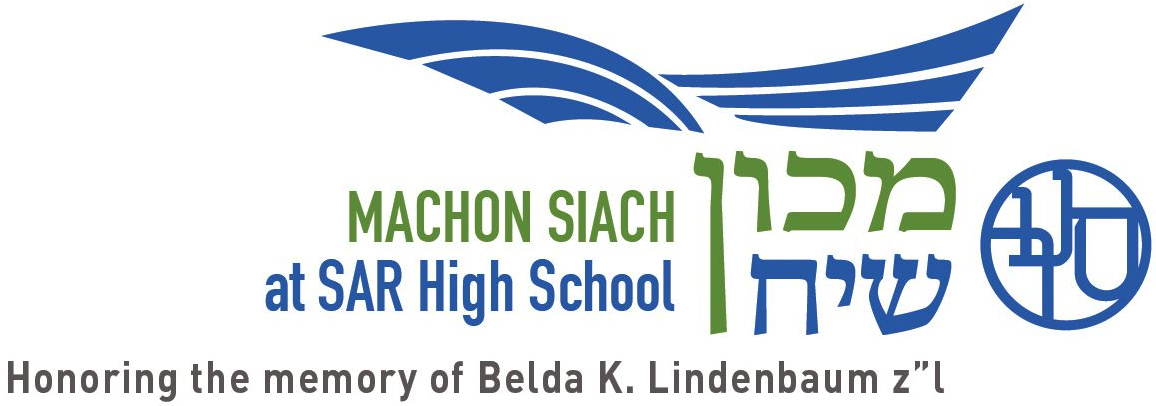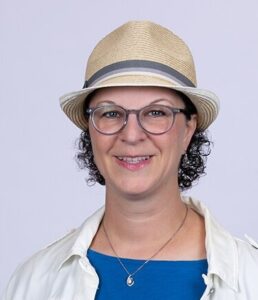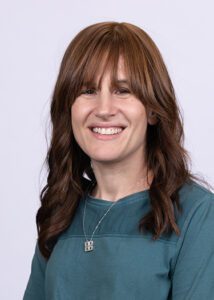
Machon Siach’s Innovation Lab
Machon Siach exists to demonstrate that high schools can be thinking institutions and that high school teachers are content and pedagogy experts. For the last seven years, Machon Siach has given SAR High School’s teachers the opportunity to engage in meaningful scholarship, writing, publishing, presenting, and podcasting by encouraging teachers to expand and share their vast knowledge. Over the past year, our column here in The Jewish Link has given you a window into some of this work.
As Machon Siach has steadily grown, its leadership team has also recognized that our scholarly work offers opportunities for iterative learning, not only bringing the classroom to teachers’ research but bringing teachers’ research back into the classroom. To that end, we proposed an Innovation Lab to the Covenant Foundation and were privileged to receive a 2022 Signature Grant allowing us to bring four innovations to the classroom: our teachers created an Ivrit Learning Center with interactive stations where students can deepen their receptive and expressive Ivrit skills, “ungraded” classes in which students self-reflect to assign their own grades, a hands-on halakhah program that brings halakhic learning to life, and an interdisciplinary skills class in English and History co-taught with learning specialists from our Student Learning Center.
You’ll hear more about these four innovations in the coming weeks in these pages as our innovators share some of what they’ve accomplished this year and how their experiments have shaped their teaching. Happily, the Covenant Foundation has renewed the grant for 2023, and we are beginning the process of choosing new innovations for the coming school year.
As the directors of the Innovation Lab, we have also learned so much in the first year of this project, much of which has grown from the vision of Machon Siach itself. Pragmatically, we have learned how better to organize ourselves, create more effective internal calendars, rubrics for choosing innovations, coordination among participants, and assessment methods for selected innovations. But our philosophical learning has been even more interesting and impactful than these practical developments.
First, we have seen how excited teachers are to try new things and, with the right support, are not afraid to fail forward on the path to success. Each innovator learned, through trial and error, how to achieve their pedagogical goals. Just as we saw ways that we could improve the program as a whole, our innovators found better assessments after an initial effort didn’t work well, better plans in response to those that fell short of goals, and better ways to engage students in learning. Like so many of the most valuable skills, teaching can constantly improve, and teachers – just like students – need to be given the space to experiment, reflect, revise, and try again. The Innovation Lab has provided one space for that work to happen, and we entered this process with the belief that even innovations that didn’t meet their ultimate goals would provide valuable insights into our objectives and methodologies. Luckily, all of our innovations found great success, but we know that experimentation means being comfortable with restarting, re-envisioning, and rethinking, and an Innovation Lab provides space for that important process.
Second, we have seen the value of teachers teaching teachers. Our cohort of innovators were excited to share their knowledge with each other and with their colleagues. Our innovators have begun presenting their work to the faculty, which has inspired discussions across the departments. For example, how can the techniques for reading comprehension that have been implemented in the skills-based English and History classes be applied to Judaic Studies? In what contexts can an ungraded class be successful? On a smaller scale, the subsequent conversations among teachers — about the types of feedback that inspire the most growth or whether to present vocabulary before or after seeing a new text — are impactful even without making major curricular changes.
Third, we see that schools themselves can constantly evolve and grow, and that teachers want to be — and must be — part of that evolution. Teachers are at the core of the student experience, constantly interfacing with their students and carrying out the mission of the institution. They understand students’ current challenges and are the vehicles through which students may be opened to new opportunities. Any holistic development must have teachers at its core.
Fourth, we recognize how empowering it is for teachers to be granted opportunities to be expert and open themselves to their own, and not only their students’, learning. Having visionary leaders is necessary for a school to grow and succeed, and we are lucky at SAR to have administrators who are both idealistic and grounded in reality. But teachers are themselves visionaries and needn’t only follow their administrators’ leads. In light of the current teacher shortage, these opportunities that allow teachers to develop their unique skills and creativity can be one avenue for teachers to continue to be inspired by their own work and to inspire each other.
Finally, we recognize that educators who are learners are also better teachers. When teachers experiment with their craft, they model the creativity and resilience that they demand from their students. Students respond to their teachers’ excitement, appreciating the passion that their teachers bring into their work. It is the teachers who build the culture in their classroom, and there is no better way to do that than by modeling for students, as well as for ourselves and each other, our own ongoing learning journeys.




